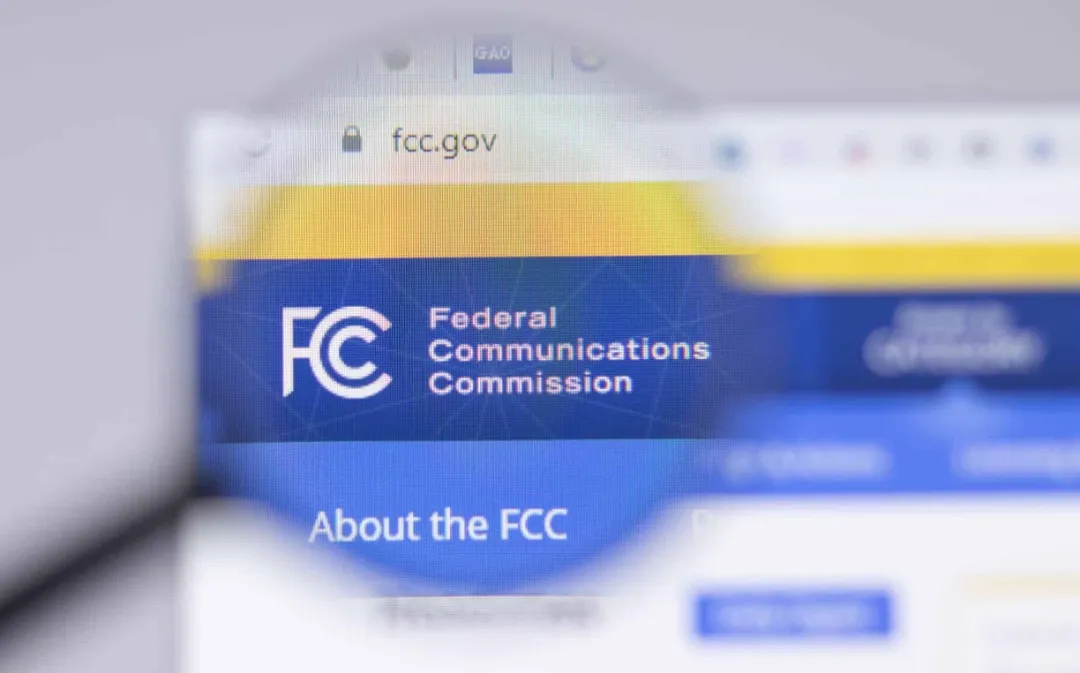
Amazon US FCC Compliance Control Requirements
As a crucial platform for overseas expansion, selling products in the U.S. market requires understanding and adhering to U.S. federal regulations to ensure compliance. Among these, the mandatory FCC certification is a basic threshold for entering the U.S. market. Recently, platforms like Amazon and TEMU have issued notices reinforcing the review of FCC certification credentials for products sold in the U.S., along with compliance control for FCC manuals. For non-compliant products, TEMU will take actions, including but not limited to actively responding to regulatory requests, issuing risk warnings to buyers, removing listings, or notifying buyers or other parties to destroy/return products.
What is FCC Certification?
FCC stands for Federal Communications Commission. Established in 1934, it is an independent U.S. government agency that reports directly to Congress. According to the Code of Federal Regulations (CFR 47), most electronic products entering the U.S. market must undergo FCC certification to ensure compliance in wireless communications.
FCC certification is a mandatory requirement for most electronic devices, including radio equipment, communication devices, and other products using wireless technologies. However, certain products or situations may be exempt from FCC certification. This certification ensures that products meet U.S. regulations and standards for electromagnetic compatibility, wireless spectrum usage, and wireless communication performance, safeguarding public safety and effective wireless operations.

What Products Require FCC Certification?
FCC certification applies to all radio devices and other electronic products sold or supplied in the U.S. market. In other words, if a device generates electromagnetic radiation and has radio transmission and reception capabilities, it needs FCC certification. Specific examples include:
- Radio transmitting devices: such as mobile phones, WiFi devices, Bluetooth devices, radios, etc.
- Wired telecommunications equipment: such as telephones, modems, fax machines, telephone line protectors, etc.
- Digital devices: such as computers, servers, printers, copiers, scanners, etc.
- Power devices: such as power adapters, power tools, household appliances, etc.
- Other electronic products: such as in-vehicle electronics, radar equipment, medical devices, etc.
Currently, there are two types of FCC certification. Sellers need to determine whether their products require FCC-SDoC or FCC-ID. Sellers must comply with platform requirements by providing accurate and complete certification documents to ensure products meet compliance and market access requirements.
1. Ordinary Products — FCC-SDoC
Applies to ordinary electronic products without wireless transmission functions, such as electronic scales, humidifiers, robot vacuums, fans, etc., if they do not have wireless features.
2. Wireless Products — FCC-ID
Applies specifically to wireless communication devices, such as mobile phones, wireless keyboards, wireless mice, wireless remote controls, Bluetooth speakers, tablets, etc.
How to Ensure FCC Certification Compliance?
FCC certification ensures products comply with U.S. regulations and standards regarding radio frequencies and electromagnetic compatibility. Sellers need to test their products, follow FCC application procedures and labeling requirements, and stay updated with the latest regulations.
Label Requirements
- fcc id Marking
The FCC requires all products emitting radiofrequency (RF) energy to display the certification label (FCC ID). The FCC ID can be affixed to the product, etched on the exterior, or electronically displayed. By law, the FCC ID must be clearly visible and legible without magnification, such as: FCC ID: XXXXXXXXX
- FCC Statement
FCC requires all products authorized under fcc sdoc or FCC certification to include one of the following compliance statements on the label:
1. For receivers associated with licensed radio services:
"This device complies with part 15 of the FCC Rules. Operation is subject to the condition that this device does not cause harmful interference."
2. For independent cable input selection switches (e.g., cable boxes, DVD players, gaming consoles):
"This device complies with part 15 of the FCC Rules for use with cable television service."
3. For all other devices:
"This device complies with part 15 of the FCC Rules. Operation is subject to the following two conditions: (1) This device may not cause harmful interference, and (2) this device must accept any interference received, including interference that may cause undesired operation."
If your product is subject to FCC regulations, ensure full compliance with all labeling requirements. Failure to label your product correctly may result in FCC action, including fines and sales restrictions.
User Manual Requirements
Under U.S. regulations, both intentional (FCC ID) and unintentional (FCC SDoC) RF electronic products must include “Information to User” in the manual. This section should include:
1. For relevant electronic or peripheral devices, the manual should include the following or similar notice in a prominent location:
“Note: This equipment has been tested and found to comply with the limits for a Class B digital device, pursuant to part 15 of the FCC Rules. These limits are designed to provide reasonable protection against harmful interference in a residential installation. This equipment generates, uses, and can radiate radio frequency energy, and, if not installed and used in accordance with the instructions, may cause harmful interference to radio communications. However, there is no guarantee that interference will not occur in a particular installation. If this equipment does cause harmful interference to radio or television reception, which can be determined by turning the equipment off and on, the user is encouraged to try to correct the interference by one or more of the following measures:
- Reorient or relocate the receiving antenna.
- Increase the separation between the equipment and receiver.
- Connect the equipment into an outlet on a circuit different from that to which the receiver is connected.
- Consult the dealer or an experienced radio/TV technician for help.”
2. Warn users that changes or modifications not expressly approved by the party responsible for compliance may void the user's authority to operate the equipment, for example:
“Important: Changes or modifications not expressly approved by the manufacturer responsible for compliance could void the user's authority to operate the equipment.”
Email:hello@jjrlab.com
Write your message here and send it to us
 Toothbrush FDA Certification Testing
Toothbrush FDA Certification Testing
 Snoring Device FDA 510k Standard Testing
Snoring Device FDA 510k Standard Testing
 Single Use Intravenous Catheter Certification Test
Single Use Intravenous Catheter Certification Test
 Silicone Material Product Compliance Certification
Silicone Material Product Compliance Certification
 What to Do If Cytotoxicity Test Results Are Positi
What to Do If Cytotoxicity Test Results Are Positi
 ISO 10993:5 Cytotoxicity Testing Methods
ISO 10993:5 Cytotoxicity Testing Methods
 FDA ISO 10993-1 Biocompatibility Evaluation Guidel
FDA ISO 10993-1 Biocompatibility Evaluation Guidel
 In Vitro Cytotoxicity Testing for Medical Devices
In Vitro Cytotoxicity Testing for Medical Devices
Leave us a message
24-hour online customer service at any time to respond, so that you worry!




